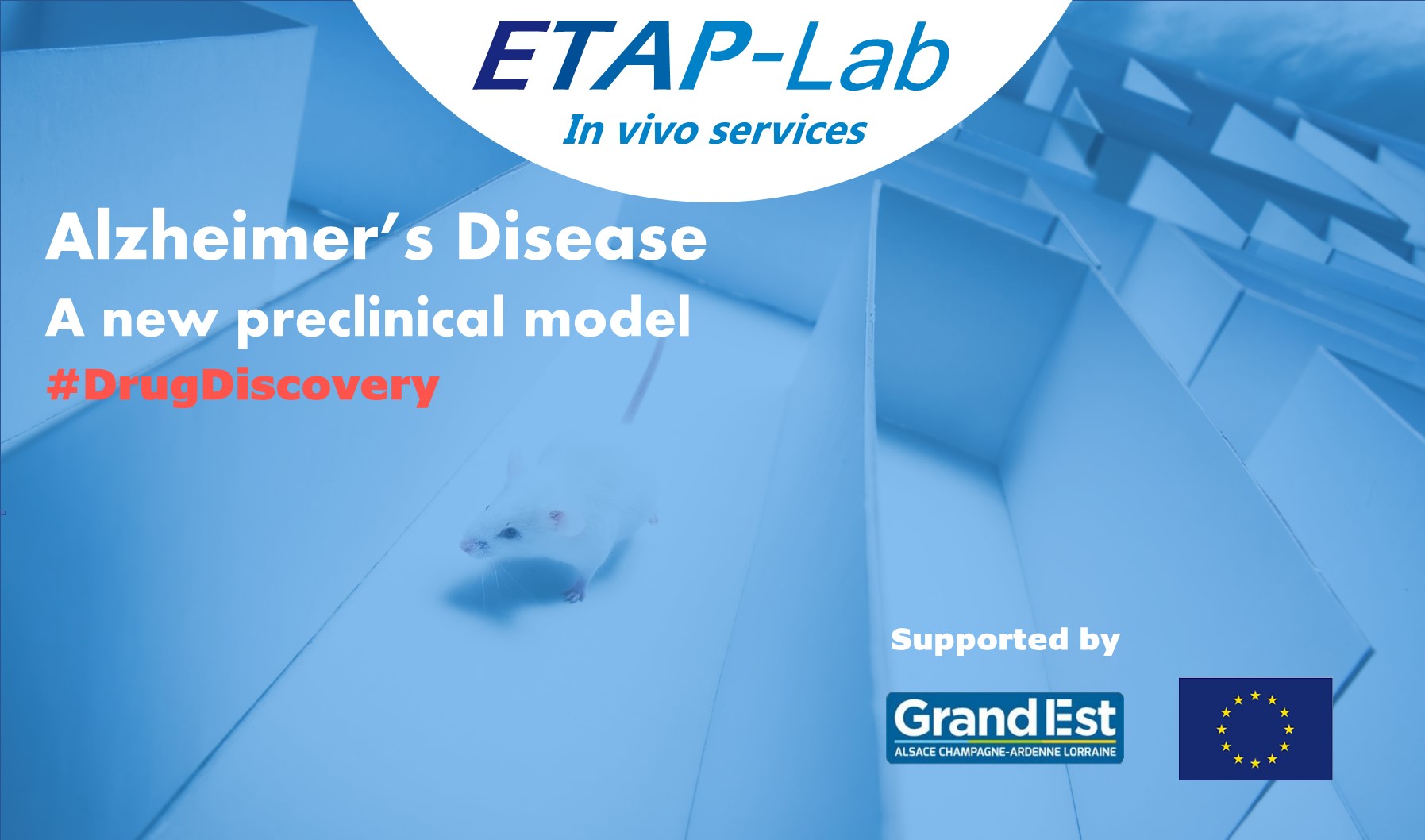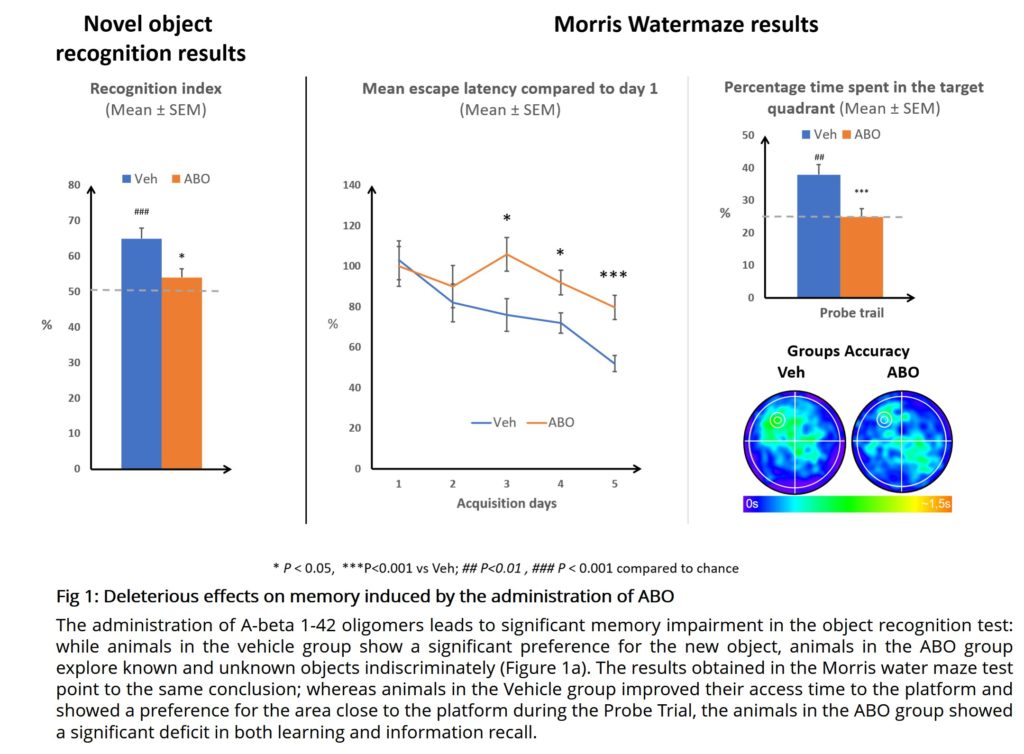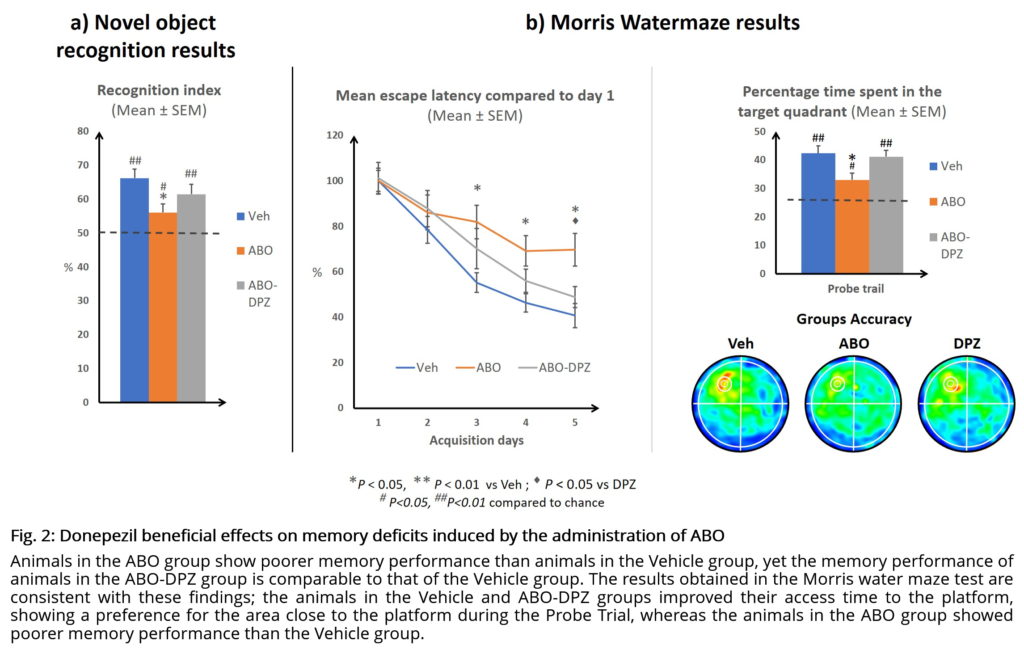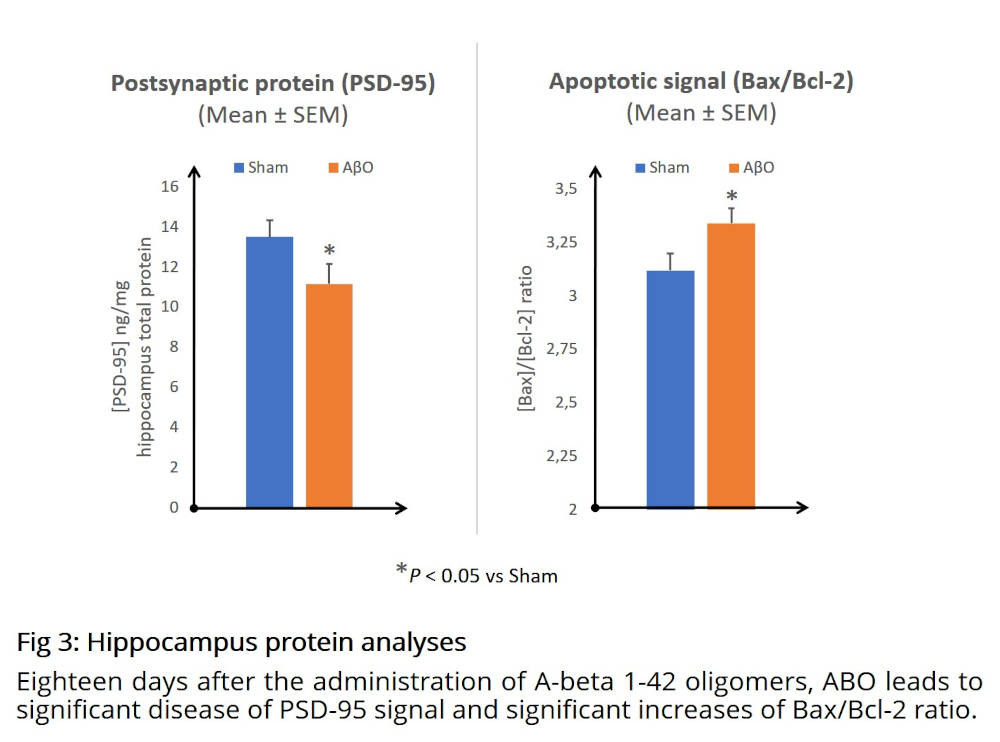
Newsletter #9 : ETAP-Lab launches its new model, associating beta-amyloid oligomers and aged mice
In May 2021, ETAP-Lab is adding its latest mouse model of Alzheimer’s disease to its catalogue. Using our expertise in the manufacture of oligomers from A-beta1-42 peptide, we have demonstrated that these compounds are toxic to the central nervous systems of aged mice and cause changes in the expression of synaptic markers and apoptotic signalling, associated with a decrease in their memory capacity.
ETAP-Lab has been producing A-beta1-42 peptide oligomers since 2019, and offers an in vitro testing service for the screening of new therapeutic agents in neurodegenerative diseases (Find out more about our in vitro models >>).
We have now been able to show that intracerebroventricular administration of these same A-beta1-42 oligomers (AβO) to 18-month-old mice leads to highly reproducible short- and long-term memory deficits (Fig. 1). These observed cognitive alterations are statistically correlated with decreased expression of synaptic markers (PSD-95) and increased apoptotic signalling (Bax/Bcl2 ratio) in the hippocampus (Fig. 2). Used as a reference molecule, Donepezil significantly improved cognitive performance in these mice in both of the tests used (Fig. 3), confirming the model’s translational value.
This research was carried out as part of the Bioprolor2 programme. Bioprolor2 is co-inanced by the “Region Grand-Est” and the European Union through the “FEDER-FSE Lorraine et Massif des Vosges 2014-2020” operational programme.
The AβO, together with the associated models now on offer from ETAP-Lab make it possible to evaluate both the efficacy and the therapeutic potential of molecules against Alzheimer’s disease, both in vitro and in vivo.
For more information, please contact our team of neuroscientists >>







